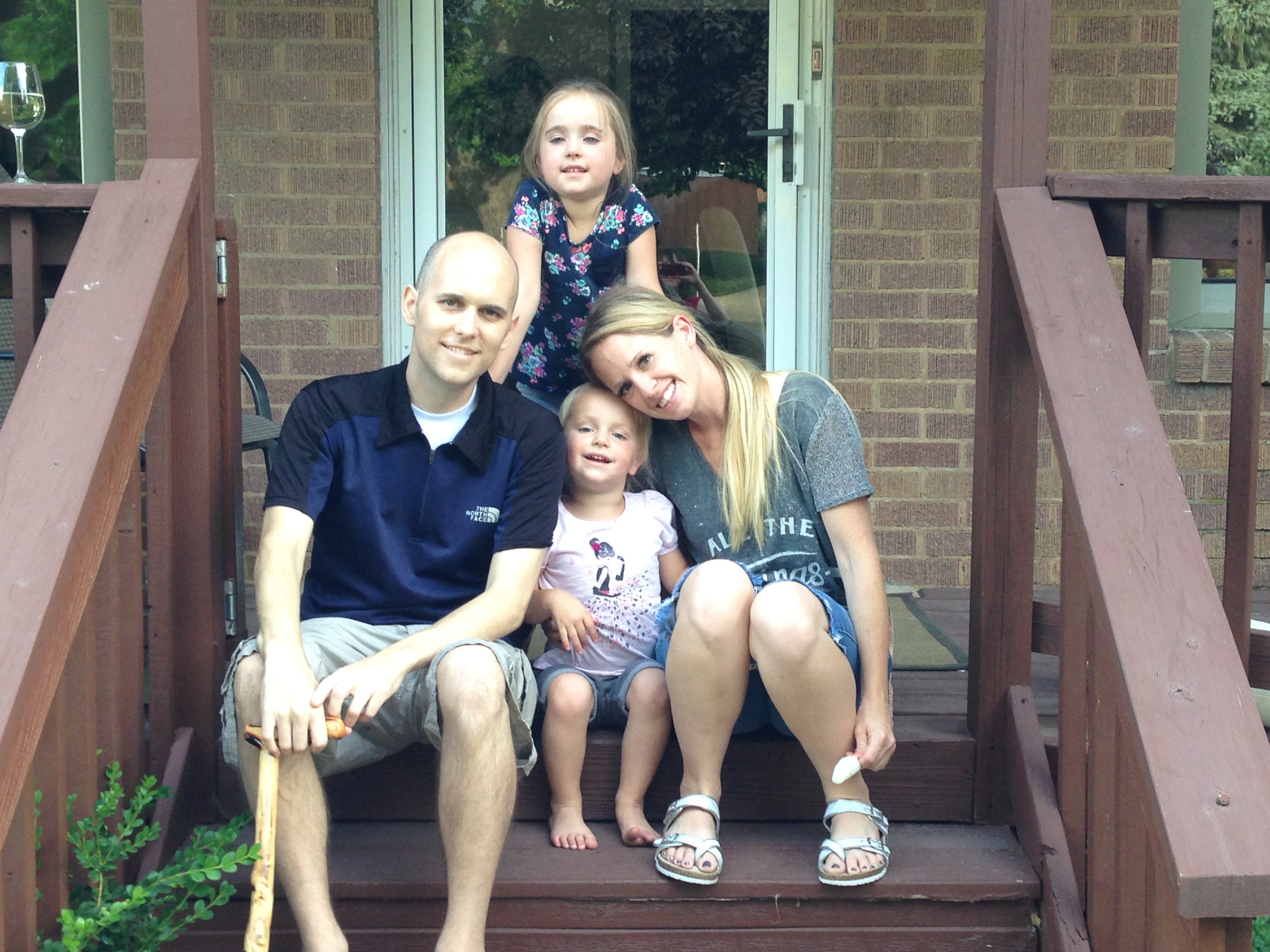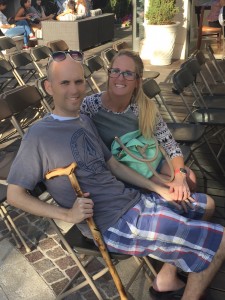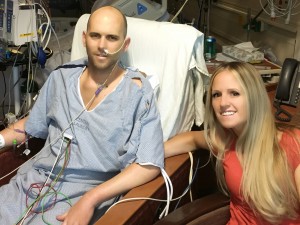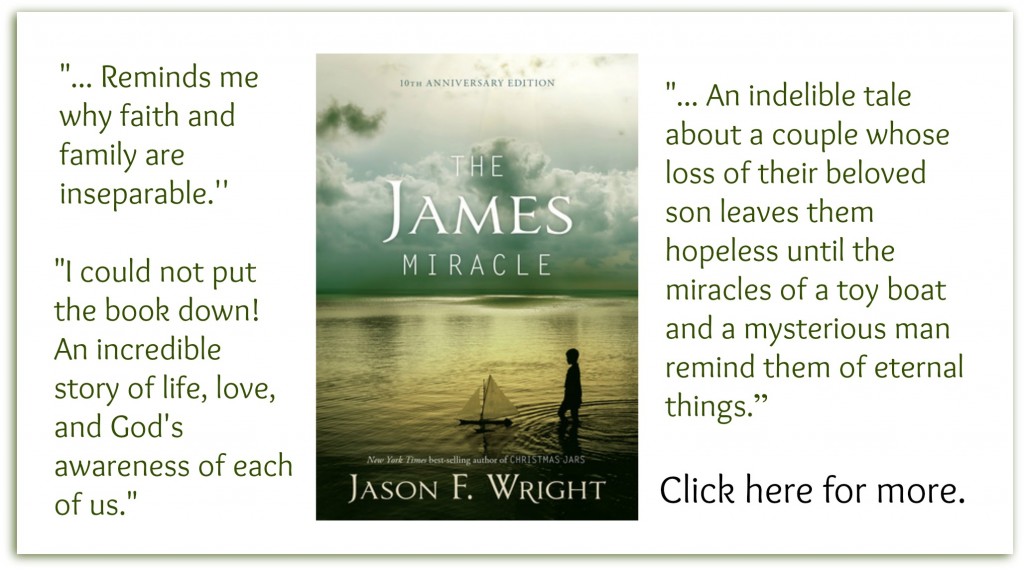
36-year-old terminally ill father says everyone has two stories
[mashshare]
Paul Moore, 36, of Farmington, Utah, sits across from me on an oversized couch with his head resting against a pillow.
“We all have two stories to tell,” he says, stealing a glance at his wife, Joni. “I choose to tell mine in the best way possible — with grace.”
I observe closely and take notes on my laptop, balanced on an ottoman near him.
Moore’s face is thin, but his eyes are wise. He has a large lump at the middle and top of his chest that’s visible through his lightweight, pull-over sweatshirt. His arms are wiry and his legs are tired.
I type the words:
Paul Moore is dying. But his spirit and faith? They couldn’t be more alive.
![IMG_1288[1]](http://jasonfwright.com/wordpress/wp-content/uploads/2015/09/IMG_12881-300x225.jpg) In February, at the insistence of a close friend and neighbor, Moore and his wife visited the emergency room with questions about what they thought were cysts and pulled muscles in his shoulder and neck. He’d been working long hours renovating a spare room in their home and suspected he’d simply overdone it.
In February, at the insistence of a close friend and neighbor, Moore and his wife visited the emergency room with questions about what they thought were cysts and pulled muscles in his shoulder and neck. He’d been working long hours renovating a spare room in their home and suspected he’d simply overdone it.
Tests revealed something much more serious. Doctors discovered approximately 40 tumors of various shapes and sizes, including some on his skull.
Over the painful weeks and months that followed, Moore underwent half a dozen surgeries, including kidney removal and a complete hip replacement that nearly killed him. To survive the surgery, Moore was given 16 units of blood.
He’s also endured radiation, a fractured back filled with cement to keep from collapsing and drugs that even guinea pigs would resist.
“And none of it’s worked,” he says, without a bit of bitterness. In fact, in August. Paul was told he has perhaps two more months to live.
 Our long afternoon discussion moves leisurely, like a pleasant Sunday stroll, and at times I have to remind myself to take notes. It’s easy to become hooked on his faithful outlook in the face of certain death. And though Paul and Joni’s approach is awe-inspiring, it’s hardly surprising to those who know them best.
Our long afternoon discussion moves leisurely, like a pleasant Sunday stroll, and at times I have to remind myself to take notes. It’s easy to become hooked on his faithful outlook in the face of certain death. And though Paul and Joni’s approach is awe-inspiring, it’s hardly surprising to those who know them best.
The couple met at Utah State in 2003 and Paul slyly describes his pitch for a second date. “How can I be with you tomorrow?” he said as the night ended. Naturally, Joni agreed to another date and to many more tomorrows.
Married in 2004 while attending Utah State, Paul remembers the morning he dropped this conversation bomb on Joni: “So, what do you think about moving to Indiana?”
“OK,” she said effortlessly, as if agreeing to share an American Grand Slam at Denny’s and not to a move across the United States. In the end, they settled on Texas, and Paul attended graduate school at Texas A&M.
 With a promising career in corporate human resources, the Moores moved on to job opportunities in Kentucky, Connecticut, North Carolina, Colorado and Nevada before feeling strongly prompted to relocate in 2013 to Farmington.
With a promising career in corporate human resources, the Moores moved on to job opportunities in Kentucky, Connecticut, North Carolina, Colorado and Nevada before feeling strongly prompted to relocate in 2013 to Farmington.
“As soon as we walked in, I knew this was the house,” Joni says. “I could have made an offer from just inside the front door.”
With that bold statement, we explored their feelings about friends and community in the face of such trials. “We were led here,” Paul says. “It’s become like a mission for all of us. There’s such a fire here in Farmington. I’ve witnessed it.” From the people to the city itself, the Moores are humbled by the outpouring of support.
That support has come in private, anonymous ways, and in very public gestures. A foundation has sprung up to support the family, but founders hope its vision will long outlive all of them.
The Paul Moore Foundation was founded by four women in the family’s neighborhood with a deep desire to help ease the financial burden of Paul’s terminal illness. Their initial efforts will support the Moores, but their goal is to meet needs of other families with a terminally ill parent. “It’s surprising to us,” Paul says, “that more help isn’t available for families where the breadwinner is terminally ill.”
![Attachment-1[3]](http://jasonfwright.com/wordpress/wp-content/uploads/2015/09/Attachment-13-240x300.jpeg) Not surprisingly, Joni becomes emotional discussing the love that surrounds them. “The goodness of people? It has no boundaries,” she says, wiping tears and looking at Paul. “Our gratitude just rises up and up and up every day. Sometimes people use words like ‘amazing’ and ‘awesome’ too casually. For us, we see these actual definitions at work. We are truly amazed by what people are doing for us.”
Not surprisingly, Joni becomes emotional discussing the love that surrounds them. “The goodness of people? It has no boundaries,” she says, wiping tears and looking at Paul. “Our gratitude just rises up and up and up every day. Sometimes people use words like ‘amazing’ and ‘awesome’ too casually. For us, we see these actual definitions at work. We are truly amazed by what people are doing for us.”
Later in our visit, we lead our discussions to the Moore’s two daughters, and Paul speaks lovingly of Ellie, 5, and Reese, 3. Both are on the autism spectrum and Paul admits to worrying about what they’ll remember about their dad. “I’ve written letters to them and we’re making videos,” he said, wiping tears from both eyes. When he’s done, Joni grabs his hand.
“They won’t forget,” she whispers.
Paul confides that he’s not scared of dying, but he does wonder and worry about his Joni and the girls. “I wonder … where will it happen and when? How do you know? I can’t imagine just not waking up some day and then the kids seeing me taken out.”
Again through tears, Joni promises the girls will be protected from the more challenging moments of the days to come.
![Attachment-1[2]](http://jasonfwright.com/wordpress/wp-content/uploads/2015/09/Attachment-12-300x203.jpeg) Like a stiff breeze pushing away dark clouds, Paul’s smile returns. “Great things come from trials,” he says. “I’ve learned the depression doesn’t get me anywhere. I consider myself one of the luckiest guys on Earth. What a blessing to have time to prepare, even to mentally prepare to see what I will see and to be worthy of the other side.”
Like a stiff breeze pushing away dark clouds, Paul’s smile returns. “Great things come from trials,” he says. “I’ve learned the depression doesn’t get me anywhere. I consider myself one of the luckiest guys on Earth. What a blessing to have time to prepare, even to mentally prepare to see what I will see and to be worthy of the other side.”
All of it, he prays, will have a positive impact on his family until they’re reunited. This principle of eternal families is something even his daughters understand. “Ellie knows what’s happening. She shares a lot, maybe even too much,” Paul says, as he and Joni both smile. “She says to people, even in the grocery store, ‘My daddy has cancer.’”
More importantly, Ellie also shares that he’ll soon be gone, but that one day they’ll be with him again.
Before we say goodbye, Paul takes time to thank his brothers and in-laws for their support and to offer a message of hope to those that will never meet him, but may hear his story. “Please quit wasting time with negative thoughts. Let your perspective change. It’s worked for me. There are so many good people all around you. I’ve had to let those thoughts go and start driving in the slow lane. You can do this, too.”
Paul Moore is right — everyone has two stories. We could have spent the afternoon discussing sickness, treatments and heartache, or used the time to talk about inspiration. With their remarkable candor, the Moores are taking a chance that Paul’s journey to the other side might inspire someone else.
“Make a choice,” Paul says. “And always tell the most inspirational story you can. I view what I’m experiencing as a privilege and a blessing. That’s the story we want to tell.”
They’re doing that and so much more. Paul Moore has lived a grateful, faithful life, and he’ll die the same way. And while the timing may not be his to determine, he’s living and telling his family’s story on his terms.
And he’s telling it with grace.
(Jason Wright is a New York Times bestselling author, columnist and speaker. Subscribe to his weekly columns, join him on Facebook and follow him on Twitter. His latest book, The James Miracle, is available from Amazon and BN.)
 Click here to subscribe and be the first read Jason’s weekly columns and other posts. You’ll also hear about exclusive contests, freebies and sneak peeks of new projects.
Click here to subscribe and be the first read Jason’s weekly columns and other posts. You’ll also hear about exclusive contests, freebies and sneak peeks of new projects.
“Share” this week’s column on Facebook and you could win a free, autographed book. Each week, we pick one “Share” at random, and that reader receives an autographed copy of a Jason Wright novel. If your name is below, contact us to claim your prize.
Congrats to this week’s winner: Sheri Bultez Tidwell
